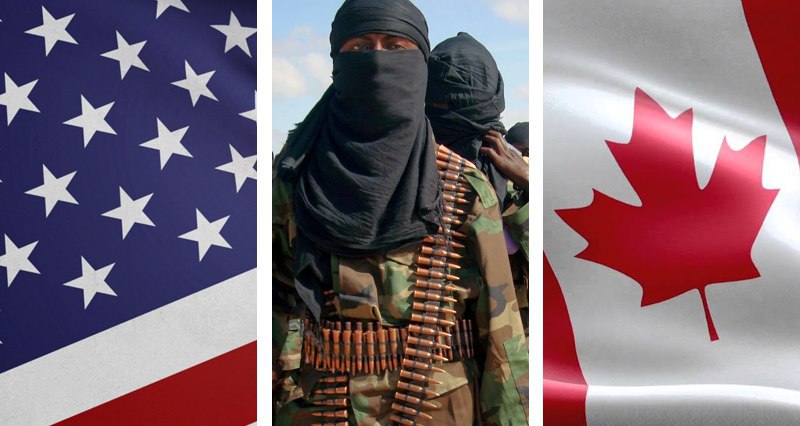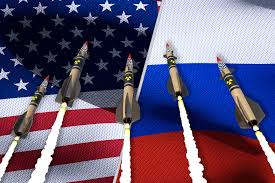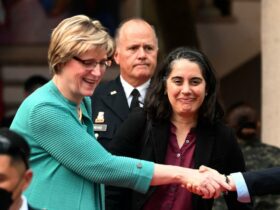US reopening
President Donald Trump on Thursday announced a directive for the states to start opening their economies. The US president said the country was now ready to move to the next phase in the war against coronavirus. It was time, he said, “to open up. America wants to be open, and Americans want to be open.”
Trump committed his administration to a “science-based reopening.”
“We are starting our life again, we are starting rejuvenation of our economy again, in a safe and structured and very responsible fashion,” the president said.
He cited several states that have taken steps towards “safe, gradual and phased opening”, including Texas, Vermont and Ohio. He insists on easing the US embargo by May 1. Leadership notes, however, that such a plan depends largely on more coronavirus tests.
Trump found himself surrounded by opposing voices: on the one hand, the media and those affected by the coronavirus criticized him for another easing of quarantine measures during the peak of the epidemic. On the other hand, protest movements kicked off throughout the US with demands to restart the economy despite the risks of Covid-19. There were protests in defiance of the quarantine in Arizona, Montana, Colorado and Washington.
Given that Trump had repeatedly hesitated and put the economy and the lives of the sick first, the situation has since grown critical. In fact, the president has relegated the decision to local levels so that state governors could deal with the pandemic’s problems themselves.
In charge of the most populous state in the country, California’s governor Gavin Newsome was the first to introduce a stay at home regime. Neighboring states on the west coast of Washington and Oregon followed suit a few days later.
As a result of vague policies and an inherently unjust social system, the United States became the center of the coronavirus crisis with more than 735,000 cases and about 40,000 deaths already registered.
The US vs. the WHO
At a briefing on Tuesday, President Trump announced that the United States would immediately halt all funding to the World Health Organization (WHO), saying it had put “political correctness over lifesaving measures.”
All of this is part of a broader campaign to discredit China. With these allegations, the White House is trying to cover up its own incompetence in handling the pandemic.
A conversation between Trump and Erdogan
On Sunday, Presidents Recep Tayyip Erdogan and Donald Trump agreed to cooperate in the fight against coronavirus and its consequences. During a phone conversation they discussed bilateral relations and agreed to cooperate in the fight against Covid-19, calling it a condition of “spirit of solidarity” for the alliance of NATO countries.
Erdogan is again trying to play both sides, engaging in multipolar cooperation while making concessions to the Atlantists. Experience has shown that nothing good can come out of such a balancing – Ankara again runs the risk of being caught in a trap such as the attempted coup in 2016, which directly involved American forces. As we wrote earlier, Ankara must find the strength to abandon this game and commit to a multipolar strategy, focusing on its closest neighbors in Eurasia. Perhaps the fact is that Erdogan plays from a position of strength and requires respect from the members of the block, and the format of direct agreements with Trump, are simply more convenient for him. The coronavirus epidemic has obligated countries to help each other and act in solidarity. However, interpreting it in the context of a collapsing NATO alliance as “solidarity within the bloc” could be a critical mistake for Turkey and its sovereignty.
NATO Summit: Turkey as a litmus test for a collapsing alliance
Deadly terrorist attack in Nigeria
At least 47 people were killed in armed attacks in northwest Nigeria, local authorities said on Sunday. An unidentified armed group attacked the Dutsinma, Dan Musa and Safana regions, according to Gambo Isa, the police chief in the northern state of Katsina in the West African country.
Gambo Isa also said many were injured and hospitalized in the attack, while air and ground operations were launched in the region.
Local conflicts between Fulani and its neighbours have also become frequent in the region, with terrorists taking advantage of such situations and launching surprise strikes.
This is taking place against the backdrop of the confrontation with terrorists Boko Haram, who have been active in the country since 2009. At least 10 members of the group have been killed during an operation in northeastern Yobe State, the Ministry of Defence Spokesman John Enenche told reporters earlier.
The problem is that the terrorists are only gaining ground in Africa, and their influence has spread to the neighbouring states of Niger, Chad and Cameroon.
The UN noted that the activities of Boko Haram have already provoked at least 30,000 people in Nigeria and many have been forced to move to other countries. In Chad, their activities have hit millions of people.
As we wrote earlier, terrorists in Africa are taking advantage of the coronavirus epidemic to strengthen their position in the region and in the future to act on other continents.
Shooting in Canada
In Canada, there was a shooting that killed at least 16 people. The shooter, who at some point disguised himself as a police officer, committed a terrorist attack in the Canadian province of Nova Scotia.
As the Royal Canadian Mounted Police said, the gunman, 51-year-old Gabriel Wortman, worked as a denturist. The police did not yet consider the act to be a terrorist attack, but the security situation in the country was being questioned.

















Leave a Reply